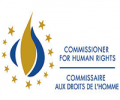Compensation to five Kosovar Albanians for torture and unlawful detention in 1999
 The Court of Appeals in Belgrade has affirmed the judgment of the First Basic Court ordering the Republic of Serbia to pay a total of 1.3 million RSD to Kosovo Albanians Tahir Bytyqi, Smajl Gashi, Rrahman Elshani, Hysni Podrimçaku and Bekim Istogu, in compensation for the torture they were subjected to by members of the Serbian Ministry of the Interior (MUP) during their unlawful detention in 1999 and 2000. While being one of the few final judgements that have recognised the right to compensation of victims of the Serbian security forces, the HLC considers that the sums awarded to each of the victims – 200,000 or 300,000 RSD – do not contribute to ensuring justice for misdeeds committed during the 1990s.
The Court of Appeals in Belgrade has affirmed the judgment of the First Basic Court ordering the Republic of Serbia to pay a total of 1.3 million RSD to Kosovo Albanians Tahir Bytyqi, Smajl Gashi, Rrahman Elshani, Hysni Podrimçaku and Bekim Istogu, in compensation for the torture they were subjected to by members of the Serbian Ministry of the Interior (MUP) during their unlawful detention in 1999 and 2000. While being one of the few final judgements that have recognised the right to compensation of victims of the Serbian security forces, the HLC considers that the sums awarded to each of the victims – 200,000 or 300,000 RSD – do not contribute to ensuring justice for misdeeds committed during the 1990s.
The Court of Appeals confirmed the factual findings made by the trial court, according to which members of MUP units arrested Tahir Bytyqi, Smajl Gashi, Rrahman Elshani, Hysni Podrimçaku and the thenunderage Bekim Istogu without any legal grounds. During the arrest and detention, the victims were subjected to various forms of mental and physical torture. The court held that members of the Serbian MUP had violated the rights of persons deprived of liberty laid down in the Criminal Procedure Code and the Law on Internal Affairs. The said MUP officers were found to have violated, among other things, the legal provisions regulating the use of coercive measures against persons deprived of their liberty, the obligation to provide a detention order and the obligation to notify a family member of an arrested person about the arrest.
Facts:
Towards the end of 1998, Serbian forces expelled Tahir Bytyqi and his family, together with other local residents, from the village of Đurđica/Gjergjica (Glogovac/Gllogoc municipality). The Bytyqis sought refuge in the village of Obrinje/Abri (Glogovac/Gllogoc municipality), and stayed there for six months. In May 1999, the Yugoslav Army (VJ) shelled Obrinje/Abri, so Tahir and his family fled with WHO? to Novo Čikatovo/Çikatove e Rë and found temporary accommodation at a farmers’ co-op. On 27 May 1999, police entered Novo Čikatovo/Çikatove e Rë. They separated the men and took them to the police station in Glogovac/Gllogoc. During interrogation at the police station, Tahir was stabbed in the stomach by a police officer and taken to the hospital in Priština/Prishtinë. After receiving medical aid, he was moved to the prison in Lipljan/Lipjan. Having spent 10 days there, he was shifted on to the prison in Požarevac, where he was held for two months in solitary confinement. Despite being in poor health throughout his detention, he was left without medical care. Nine moths later, on 23 March 2000, Tahir was released. He was never formally charged nor questioned during detention.
When Serb forces attacked the village of Lapušnik/Llapushnik in May 1998, Smajl Gashi and his family fled to Novo Čikatovo/Çikatove e Rë (Glogovac/Gllogoc municipality). Police arrested him in this village on 24 April 1999 and took him first to the prison in Priština/Prishtinë, and then to Lipljan/Lipjan. Prison guards beat him on a daily basis, trying to force him to admit to having aided the KLA/UÇK. On 10 June 1999, Gashi was transferred to the prison in Požarevac and charged with terrorism. After a trial which lasted seven months, the District Court in Niš acquitted him of charges in June 2000, and Gashi was released after spending 14 months in unlawful detention.
Rrahman Elshani was arrested in May 1999 in the village of Štrbulovo/Shtrbullovë, where he and his family found temporary refuge after being forced to leave their home in the village of Krajkovo/Krajkove. Rrahman was taken to the police station in Glogovac/Gllogoc, where police officers gave him a document to sign. When Rrahman said he wanted to read the document first, he was beaten. Two days later, police transferred him to the prison in Lipljan/Lipjan, where he was held for approximately ten days. On 10 June 1999, he was moved to the prison in Požarevac. Rrahman was never questioned nor were legal proceedings instituted against him while in detention. He was released on 22 April 2000, after 11 months of arbitrary detention.
In mid-April 1999, Serbian forces made Hysni Podrimçaku and his family abandon their native village of Krajkovo/Krajkovë (Glogovac/Gllogoc municipality). They sought refuge in Štrbulovo/Shtrubullovë. On the morning of 28 April 1999, Serb forces moved into this village and arrested Hysni, his uncle and several other men. Hysni was taken to a cinema auditorium in Glogovac/Gllogoc, where over one hundred Albanian men were being kept. During interrogation, police expressed their desire to know whether Hysni was a member of the KLA/UÇK and kept beating him all the time. Two days later, he was moved to the prison in Priština/Prishtinë and then to Lipljan/Lipjan. As a result of being beaten by prison guards on a daily basis, Hysni sustained a serious head injury. On 10 June 1999, he was moved to the Sremska Mitrovica prison and charged with terrorism. Following a trial in the District Court in Niš, which lasted seven months and resulted in his acquittal on 5 July 2000, Hysni was released, after being unlawfully detained for 14 months.
On 30 April 1999, Bekim Istogu, 16 at the time, found himself, together with his family and other village residents, in a meadow near the village of Vrbovac/Verbovc (Glogovac/Gllogoc municipality), where they had fled from Serb forces who, after shelling the village, began searching the houses. Shortly afterwards, Serb forces found the villagers who had gathered in the meadow and separated the men from the women and children. Despite being underage, Bekim was also separated into a group of adult men, among whom was his brother Florim. The men were taken to a nearby field, where they were beaten and threatened by Serb forces all day long. A soldier came, with blood in his hair, and threatened to cut off their heads. They spent the night in a cowshed. In the morning, they were transported to Glogovac/Gllogoc. As soon as they got out of the truck, policemen started beating them, with batons, truncheons and electric cords. Bekim was then taken to the Cultural Centre hall, where some 150 Albanian men were confined. The next day he was moved to a prison in Priština/Prishtinë. On his arrival there, police beat him again. For four days he was not given food or water. While in the prison in Priština/Prishtinë, he was interrogated by police. They wanted to know whether he was with the KLA/UÇK, whether he dug trenches for them, etc. They coerced him into signing a statement in Serbian. He did not know what the statement was about, because he did not speak Serbian. On 10 June 1999, he was moved to the Sremska Mitrovica prison. No criminal proceedings were ever conducted against him. He was released in October 2000, after 18 months of unlawful detention.
The torture they were exposed to during arrest and detention has had serious consequences for the mental and physical health of Bytyqi, Gashi, Elshani, Podrimçaku and Istogu. They were all diagnosed with PTSD.
On 26 April 2010, the HLC, on behalf of Bytyqi, Gashi, Elshani, Podrimçaku and Istogu, filed a law suit with the First Basic Court against the Republic of Serbia, in order to determine its responsibility for the police torture. During the six hearings held in this case, the court heard Bytyqi, Gashi, Elshani, Podrimçaku and Istogu, as well as medical experts.






